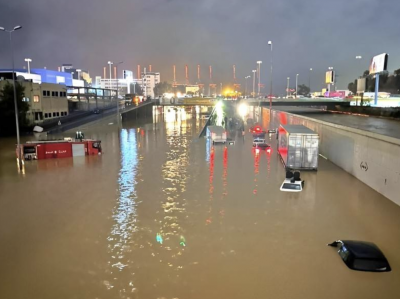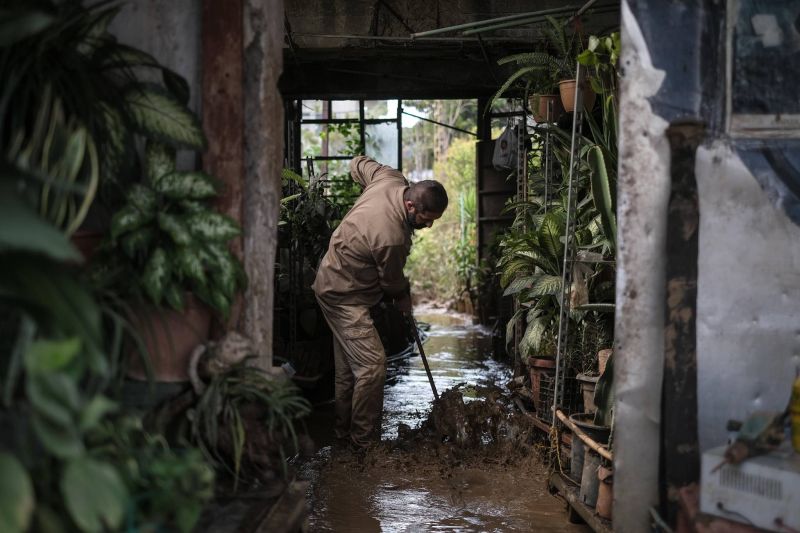
Charbel Diab, a flower shop owner in Karantina, tries to clear muddy water from his shop, Dec. 28, 2023. (Credit: João Sousa/L’Orient Today)
BEIRUT — In Karantina, the scene on Thursday in the area next to Beirut’s port is one of business owners and their employees washing away caked layers of mud following last week’s flood. The mud has settled on every conceivable surface — from furniture to asphalt.
It is as if areas next to the Beirut River, which overflowed in the chaos, were painted with harsh muddy brushstrokes.
The air is filled with the smell of wet soil.
Each year, as winter brings heavy rains, Lebanon experiences flooding that wreaks havoc in low-lying regions and triggers landslides in the mountains.
Last Friday’s flooding, however, was exceptionally intense.
In Karantina near the port, the Beirut River overflowed during a rainstorm the most severe in a decade, mercilessly tearing through nearby streets and businesses.
Roads transformed into raging rivers, trapping motorists in their vehicles, while homes in various areas across the country suffered extensive damage. Dozens of vehicles were submerged in the torrent, including a Civil Defense truck that had arrived to rescue people.
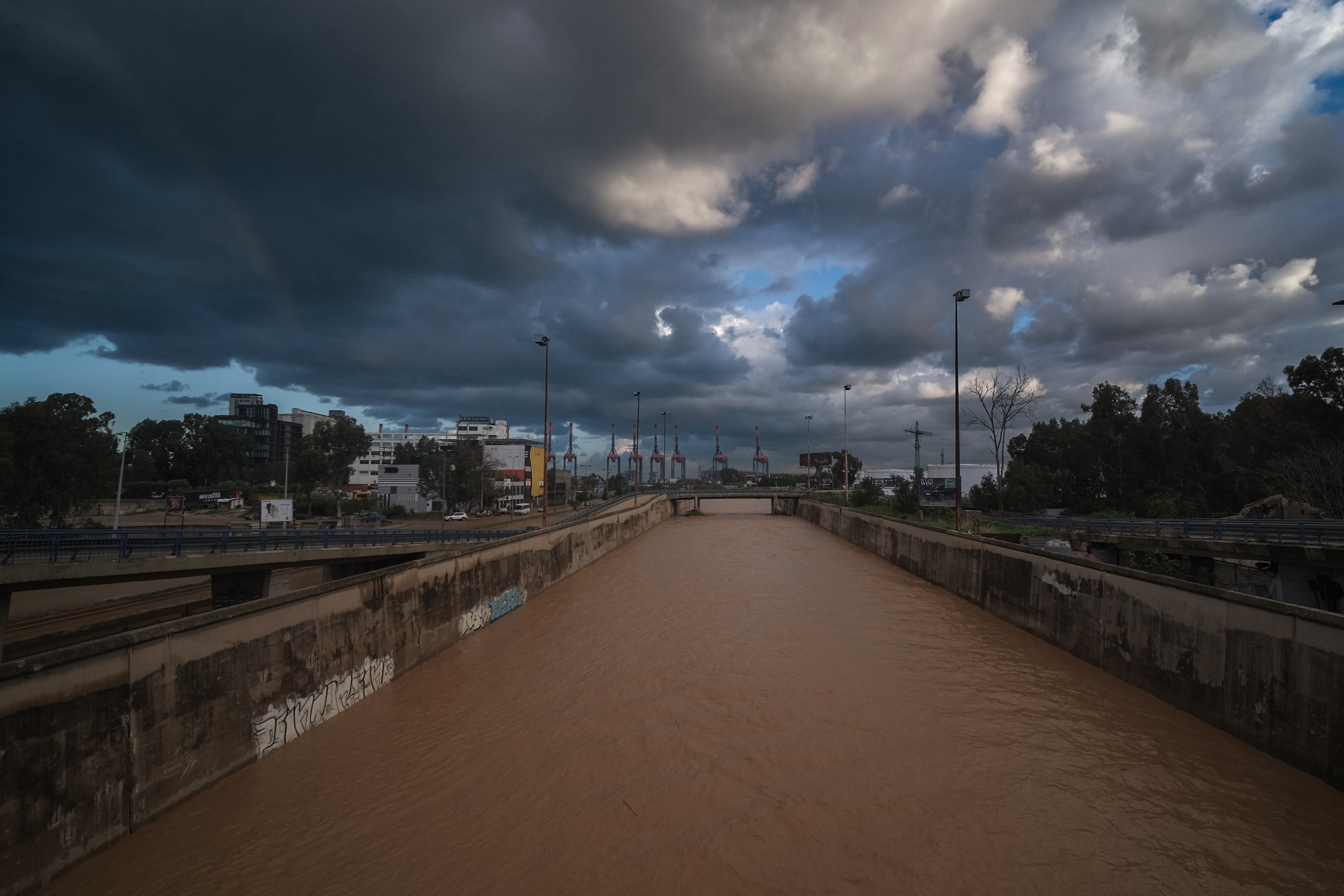 The Beirut River, which borders the eastern side of Beirut, carries inflowing mud following heavy rain last week. Dec. 28, 2023. (Credit: João Sousa/L’Orient Today)
The Beirut River, which borders the eastern side of Beirut, carries inflowing mud following heavy rain last week. Dec. 28, 2023. (Credit: João Sousa/L’Orient Today)
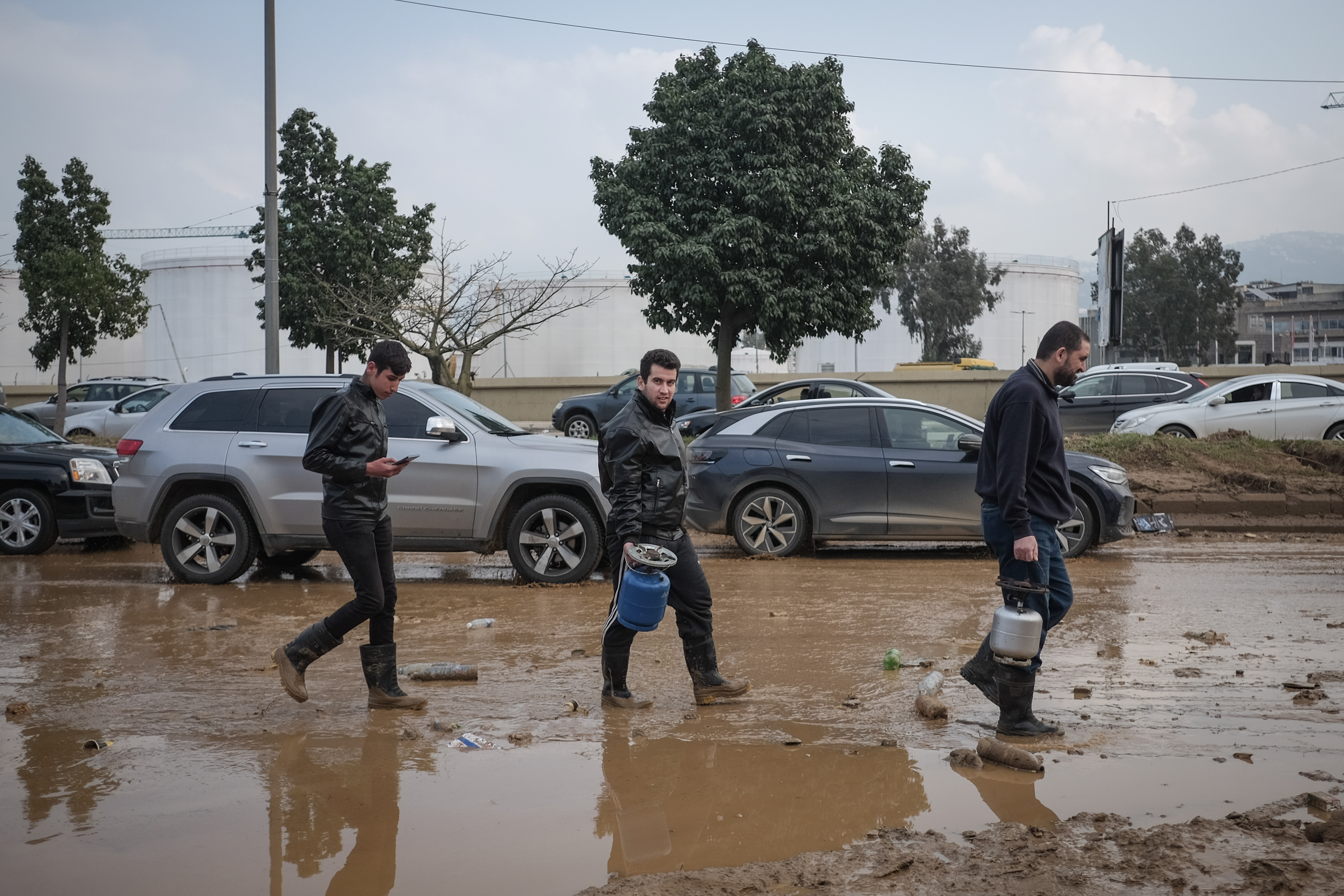 Workers clearing mud and water from their shops in Karantina, Dec. 28, 2023. (Credit: João Sousa/L’Orient Today)
Workers clearing mud and water from their shops in Karantina, Dec. 28, 2023. (Credit: João Sousa/L’Orient Today)
Nadine Chamoun, the bar manager at Karantina nightclub KED, says last Friday started “like a normal day at work.”
Soon it became a nightmare.
The torrential rain led to the flooding of the Beirut River, causing water to seep into KED and disrupt a private event scheduled for the evening.
Chamoun says she lost her car in the flooding. “The emotional and financial toll of all of this has been beyond belief,” she tells L’Orient Today. “I hadn’t even had enough money to change my car oil — I was elated to have just recently changed the horn.” Her car was not insured as she couldn’t afford it.
Four other employees at KED also lost their vehicles to the flooding. Chamoun says insurance companies informed them they won’t cover car fixes because the incident is due to natural causes.
Initially, when she and her coworkers arrived at the venue in the evening, the sight of some water seemed normal. After all, the roads in Lebanon — and especially near the coastline, often flood during downpours.
But soon, the water started rising. And though KED’s events are typically on its upper floors, the ground-level floor was filled with priceless equipment. Venue owner Gaby Markarian instructed everyone to announce that the event was canceled, sparing attendees of the oncoming chaos.
That chaos included sound equipment, ice machines and more, all submerged and now beyond repair. Workers were also evacuated from the building.
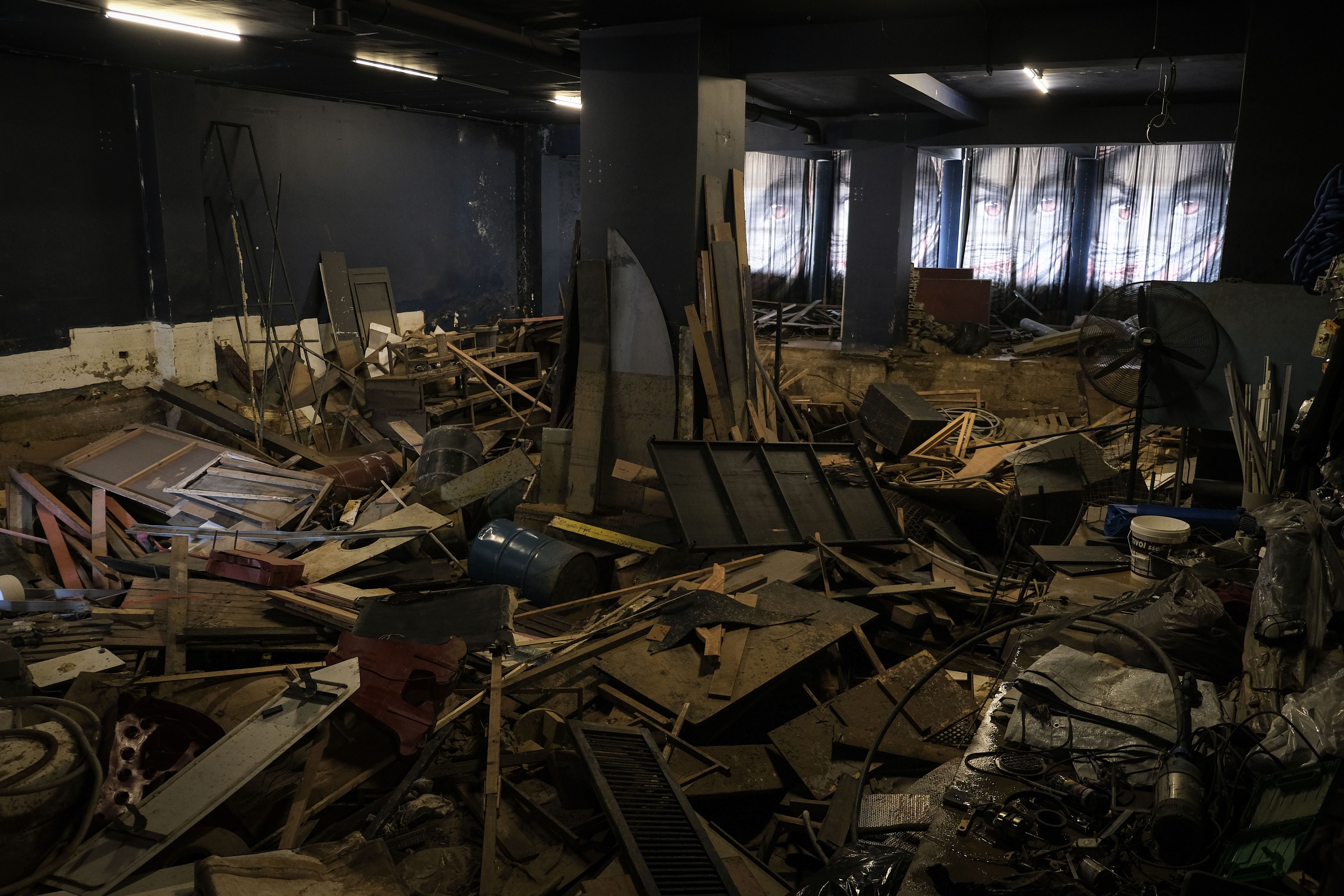 A workshop room inside KED, an event venue in Karantina, was submerged by a river flood, damaging all the equipment inside. Dec. 28, 2023. (Credit: João Sousa/L’Orient Today)
A workshop room inside KED, an event venue in Karantina, was submerged by a river flood, damaging all the equipment inside. Dec. 28, 2023. (Credit: João Sousa/L’Orient Today)
“Immediately, after we saw that the water reached the level of around 80 centimeters, a fear of electrocution emerged,” Carlos Ayvazian, an employee at KED, who also lost his car and his work laptop in the flooding, tells L’Orient Today.
“Along with other employees, I rushed to the [water-filled] electricity room to switch off the power. We took the risk of being electrocuted over staying out of that room and risking everyone getting electrocuted.”
Once out of KED, soaked to the chest and covered in mud, they walked to the Mar Mikhael neighborhood, where they were met with a surreal contrast: just 500 meters away, people were drinking and partying as usual.
And next to KED, at Forum de Beyrouth, a Christmas market was underway. Ray Chamoun, the event producer at KED, vividly recalls witnessing a man emerging from the venue, “holding a hot chocolate and a Christmas shopping bag, only to see his car floating past him.”
‘Who’s responsible?’
Caretaker Prime Minister Najib Mikati held several meetings after the flood to follow up on the losses, while caretaker Public Works Minister Ali Hamieh swiftly pointed his finger at the Energy Ministry.
In a statement, the Energy Ministry blamed the flood on the overwhelming nature of the storm, citing over 100 millimeters of rainfall in just a few hours, surpassing the country's current infrastructure capacities.
“Who's responsible then?” Chamoun asks. “Is it my problem that I came to work? Why should I pay the price for that?”
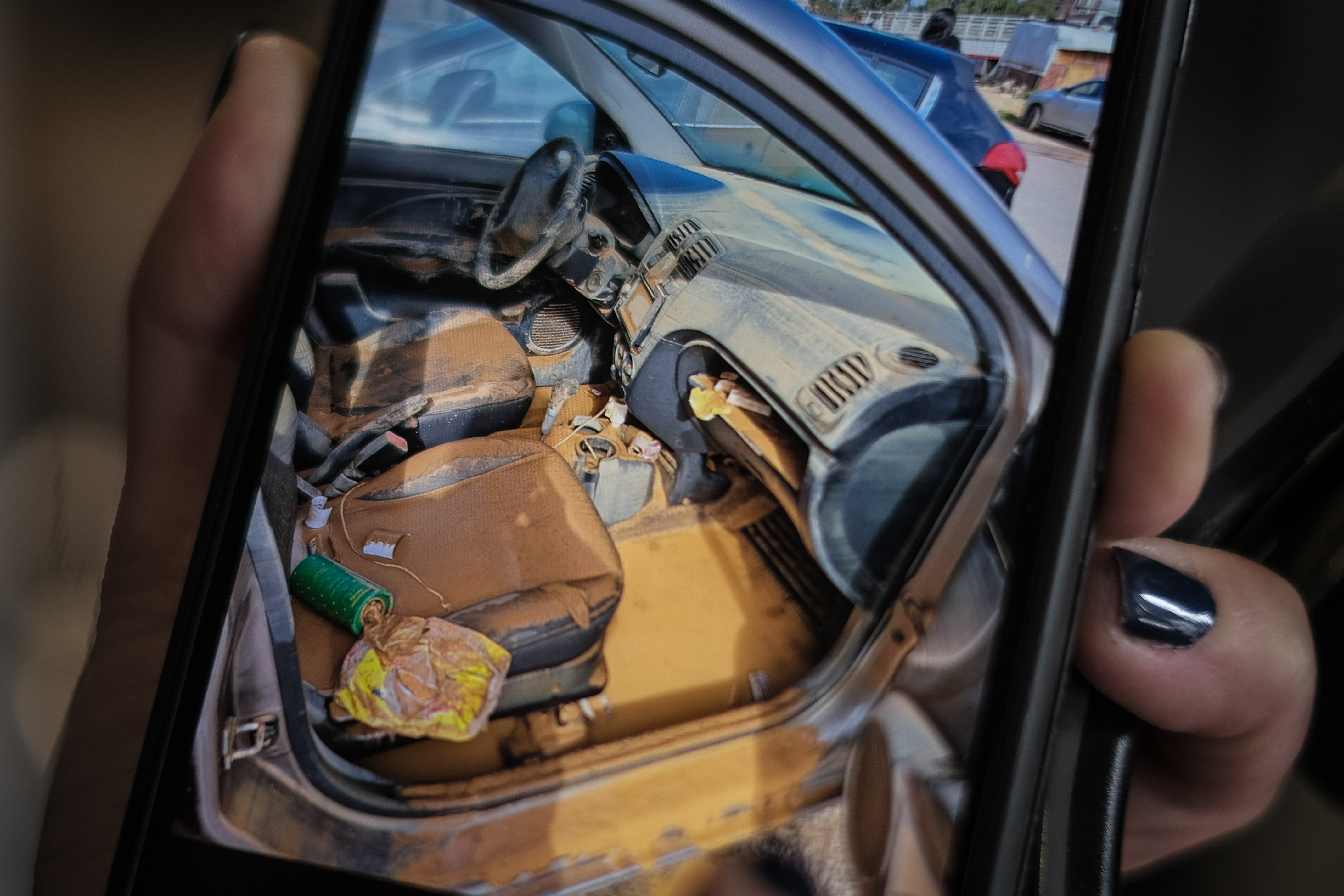 The car of Ray Chamoun, an event producer at the KED venue in Karantina, Beirut. Her car was submerged by flooding due to torrential rain causing the Beirut River to overflow. Dec. 28, 2023. (Credit: João Sousa/L’Orient Today)
The car of Ray Chamoun, an event producer at the KED venue in Karantina, Beirut. Her car was submerged by flooding due to torrential rain causing the Beirut River to overflow. Dec. 28, 2023. (Credit: João Sousa/L’Orient Today)
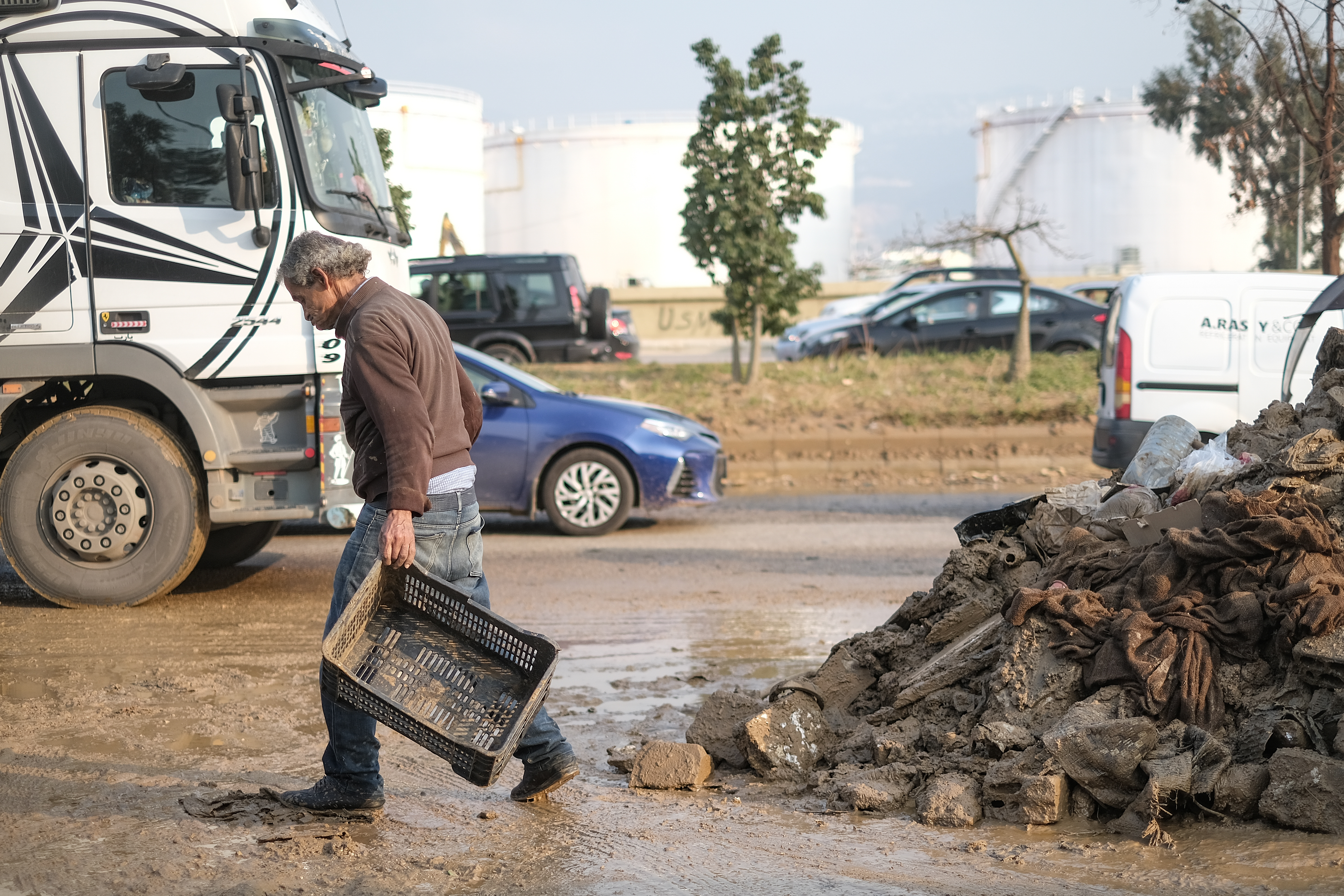 A man clears mud and garbage from shop pavements in Karantina, Dec. 28, 2023. (Credit: João Sousa/L’Orient Today)
A man clears mud and garbage from shop pavements in Karantina, Dec. 28, 2023. (Credit: João Sousa/L’Orient Today)
“We did not take into consideration nature when building our cities,” says Tammam Nakkash, a civil engineer who specializes in urban planning and transportation.
Since the river was paved and walled in with concrete, floods cannot drain properly, he explains. Adding to the problem: “A concrete barrier preventing cars from falling into the river and preventing water from draining was built. Just a small hole in the barrier could have even helped the water drain.” But there isn’t one.
“Regular maintenance of roads and drainage systems are also not being performed as it should be,” according to Nakkash.
Despite the setbacks and substantial losses, KED’s managers decided to open the venue the very next day, after the flood.
“We chose to dance and party, sending a message of defiance,” Ray says.
“We were mourning, but we wanted to dance. We want to deliver the message that we won't be subdued. If we all shut down because of what happened, where will people party?”
Still, a security forces member who visited KED on Thursday, during L’Orient Today’s visit, told Ray that compensation for the losses is not guaranteed.
Digging out from under the mud
On the same stretch of Karantina sidewalk facing the Beirut River, Bilal Hasan Alali, owner of an ice cube company, emerges from his shop wearing knee-high boots covered in mud. He instructs a bulldozer scraping mud from both inside and outside his shop.
Once back inside his warehouse, he walks down what was once a concrete path but is now a muddy road.
Alali points to a water stain on the wall, indicating how high the floodwaters reached — a staggering 1.8 meters.
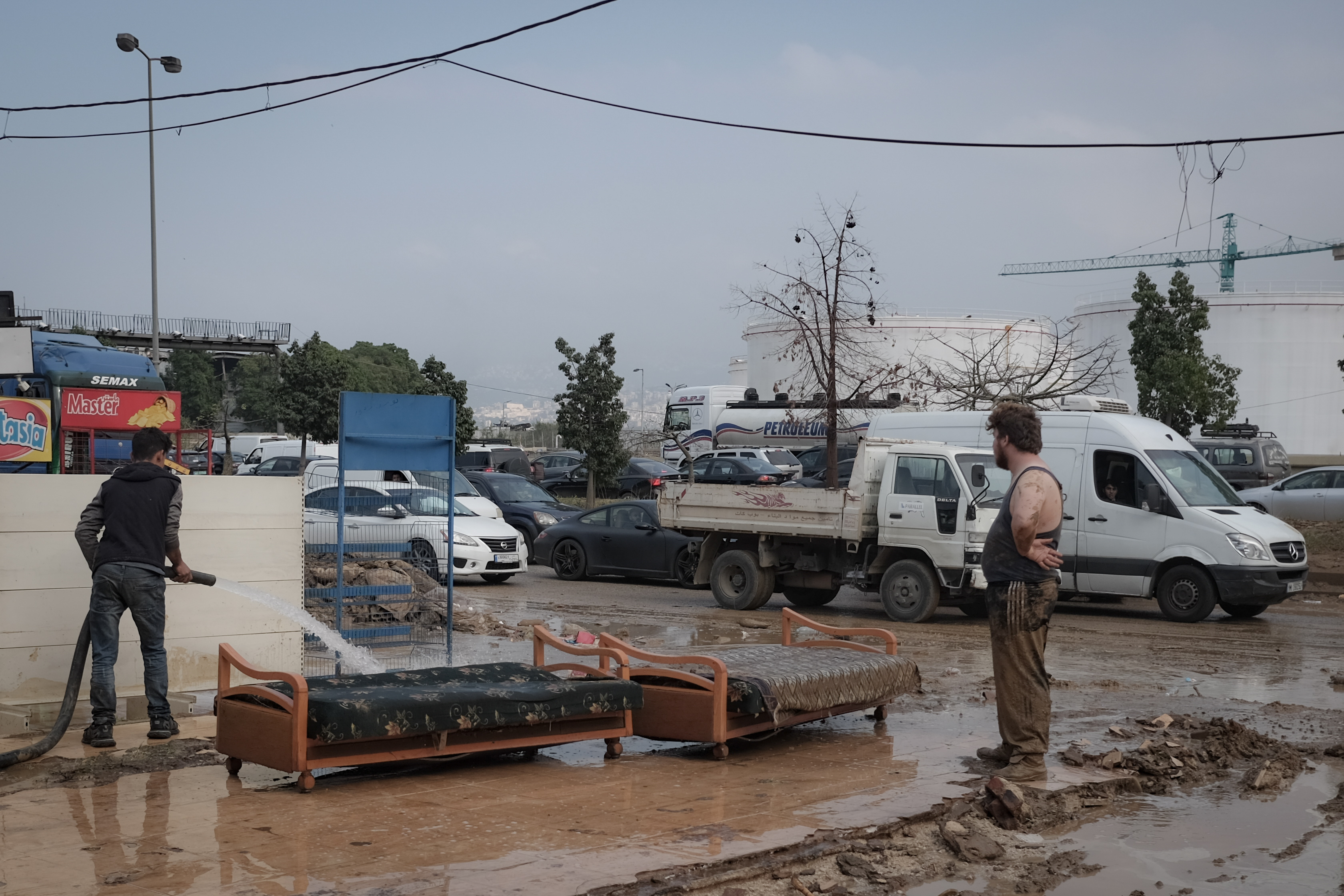 Underage workers help wash down mud from shop pavements and furniture, Dec. 28, 2023. (Credit: João Sousa/L’Orient Today)
Underage workers help wash down mud from shop pavements and furniture, Dec. 28, 2023. (Credit: João Sousa/L’Orient Today)
He’s been in the ice business for 17 years and recalls the last time the river flooded a decade ago. This time, however, his losses were much bigger, totaling over $180,000, he says.
Two large generators, crucial to his operations, were among the casualties. His four ice-making machines, valued at around $12,000 each, also suffered irreparable damage, he tells L’Orient Today.
Alali took matters into his own hands after last Friday’s flood, hiring a bulldozer to clear the water and mud from his stores and factory. Despite the magnitude of his losses, he says no help arrived from authorities. His eyes are weary due to the sleepless nights he spent clearing the wreckage.
Still, there is much work to be done. His private generator's fuse box, elevated a meter from the floor, was caked in mud after the flood. He has to wash it down with water hoses and then, to speed up the drying process, use multiple hair dryers.
A family business destroyed
Charbel Diab sips his morning coffee and smokes a hookah Thursday morning, outside his flower shop — now waterlogged and covered in mud after last Friday’s flood.
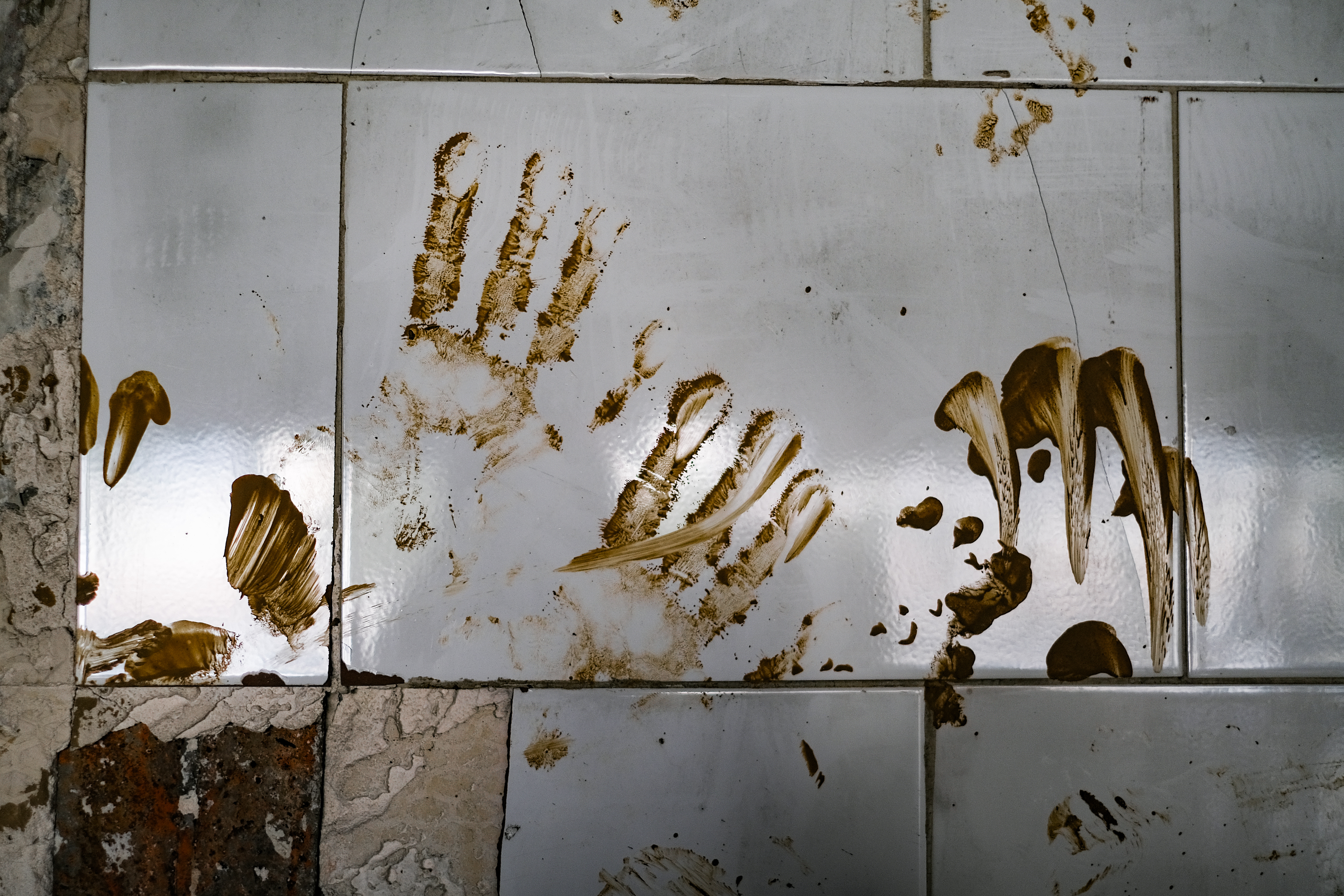 Mud stains on a wall inside Charbel Diab’s flower shop in Karantina, Dec. 28, 2023. (Credit: João Sousa/L’Orient Today)
Mud stains on a wall inside Charbel Diab’s flower shop in Karantina, Dec. 28, 2023. (Credit: João Sousa/L’Orient Today)
He had tried to reach the shop that day from his home in Dbayeh, but floods on the highway meant he couldn’t make it.
Instead, Diab could only reach his shop the following afternoon.
What he found were collapsed walls, lost tools and fertilizer bags, and dead plants and pots submerged in the muck.
“I can't even put a number on my losses,” laments Diab, his business documents and receipts also lost in the deluge.
The flower shop is a family legacy spanning around 40 years, inherited from his father.
Now Diab faces the daunting task of restoring the shop and finding a means to support his family — his wife, four children, mother and cancer-stricken father.
All the while, he can’t know for certain if the next heavy rainstorm will bring yet another devastating flood.
“I am clueless on how to get back on my feet.”
